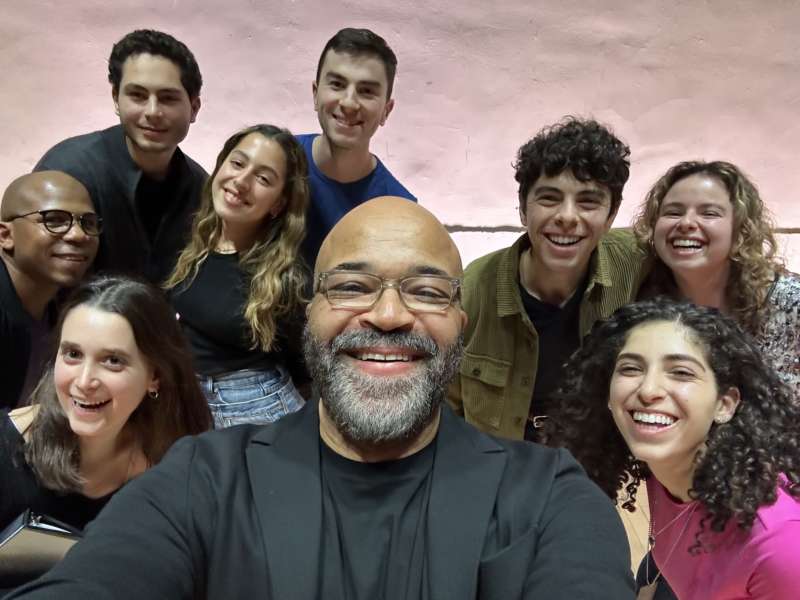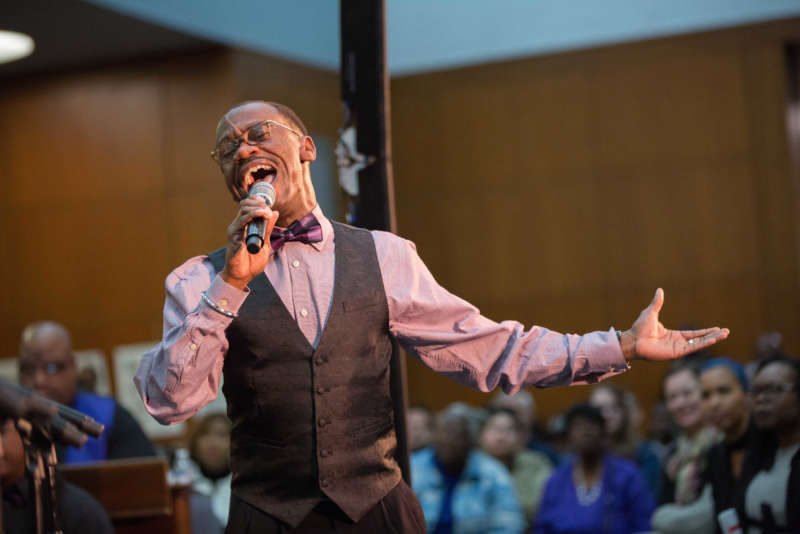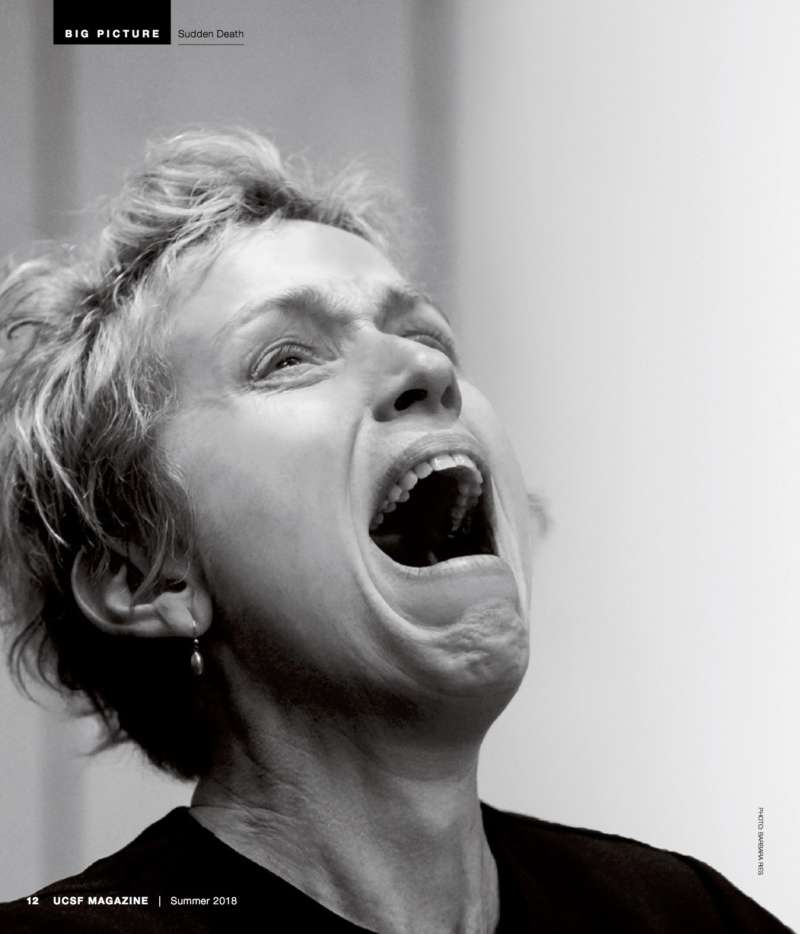Open to Public
A REFUTATION
Free Event
A REFUTATION presents dramatic readings by acclaimed actors of excerpts from conflicting historic accounts of Philadelphia’s 1793 yellow fever epidemic as a catalyst for guided audience discussions about health inequities in America today, grounded in the perspectives of nurses, caregivers, and first responders.
Featuring pamphlets, letters, and rebuttals by Richard Allen, Absalom Jones, Matthew Carey, and Benjamin Rush.
These special presentations of A REFUTATION will take place at Mother Bethel AME Church, the oldest African Methodist Episcopal church in the nation, founded by Richard Allen in 1794 and the home of his resting place.
Commissioned and supported by The Greenwall Foundation in celebration of its 75th anniversary.
Presented by Theater of War Productions in partnership with Mother Bethel AME Church, Mother Bethel Foundation, and the Philadelphia Funder Collaborative for the Semiquincentennial.
Questions about attending in person? Call (215) 925-0616.
Directed, adapted, and facilitated by Bryan Doerries.
Registration is required to attend in person or on Zoom.
This free, public, live, hybrid event will take place in person and on Zoom Webinar, broadcast from Mother Bethel AME. In person registration does not guarantee you a seat. If you choose to join us online, this event can be accessed on personal devices. The event Zoom link will be distributed via email and available to registered attendees starting two days prior to the event. This event will be captioned in English on Zoom.
All of Theater of War Productions' events follow the same format:
- The performers will read the texts.
- Community panelists will kick off the discussion with their gut responses to what resonated with them across time.
- We will open the discussion to the audience, facilitated by Bryan Doerries. To participate in the discussion online, please raise your hand using the button at the bottom center of the screen. If called upon, please accept the invitation to be promoted to speak and you will be visible and heard by the entire audience for the duration of your comments. If you would prefer not to be seen, please disable your video.
About the plays
-
A Narrative of the Proceedings of the Black People, During the Late Awful Calamity in Philadelphia, in the Year 1793, and A REFUTATION of Some Censures, Thrown upon Them in Some Late Publications by Absalom Jones (1746 – 1818) and Richard Allen (1760 – 1831)
A Narrative of the Proceedings of the Black People, During the Late Awful Calamity in Philadelphia, in the Year 1793, and A REFUTATION of Some Censures, Thrown upon Them in Some Late Publications, by Absalom Jones (1746 – 1818) and Richard Allen (1760 – 1831), highly distinguished civic and religious leaders from Philadelphia’s free Black community, was the first publication by Black authors to receive a federal copyright in the United States. Both men were born into slavery, purchased their freedom, and rose to become the important leaders in the nation’s largest free Black community. Jones was the nation’s first Black Episcopal priest, and Allen founded Bethel Church, the oldest African Methodist Episcopal congregation in the nation. Their pamphlet is the only depiction of the 1793 yellow fever epidemic that foregrounds the perspectives and experiences of Black people and the first known text to express Black community anger and directly challenge accusations and libelous statements by a white author. It had a print run of 250-500 copies.
-
A Short Account of the Malignant Fever, Lately Prevalent in Philadelphia, With a Statement of the Proceedings That Took Place on the Subject in Different Parts of the United States by Matthew Carey (1760 -1839)
A Short Account of the Malignant Fever, Lately Prevalent in Philadelphia, With a Statement of the Proceedings That Took Place on the Subject in Different Parts of the United States, by Matthew Carey (1760 -1839), an Irish immigrant and the nation’s most preeminent publisher at the time, was a runaway success. Roughly 10,000 copies of the pamphlet were sold in four editions over the span of two months. The pamphlet made distorted, racist claims about Black nurses, care givers, and first responders during the height of the epidemic, prompting Absalom Jones and Richard Allen to publish a rebuttal seven weeks after its first print run.
Explore Projects
-
 War & Mental HealthTheater of War: Hector, Andromache, and the Death of Astyanax
War & Mental HealthTheater of War: Hector, Andromache, and the Death of AstyanaxTheater of War: Hector, Andromache, and the Death of Astyanax presents live, dramatic readings of selections from Homer’s Iliad, Book VI and scenes from The Trojan Women by Euripides—featuring acclaimed actors and a Chorus of students, from a variety of backgrounds, whose lives have been impacted by war—to help frame powerful, healing dialogue about the human cost of war, centered on the suffering of children and civilians. The project uses ancient texts that explore and depict the dehumanization of war to create a vocabulary for openly discussing challenging and divisive subjects, with the aim of generating compassion, empathy, moral repair, understanding, and positive action.
-
 RacismThe Drum Major Instinct
RacismThe Drum Major InstinctCommissioned by BRIC, The Drum Major Instinct engages audiences in dialogue about racism and inequality. The performance features a dramatization of Dr. Martin Luther King Jr.’s final sermon, embodied by prominent actors and supported by a large gospel choir, composed of singers, activists, police officers, and musicians from St. Louis, MO, and Brooklyn, NY.
-
 Caregiving & DeathEnd of Life
Caregiving & DeathEnd of LifeEnd of Life presents readings of ancient Greek plays in public settings and medical communities as a catalyst for facilitated discussions about challenges faced by patients, families, and health professionals today around end of life care. This unique, participatory event is intended to promote powerful, open discussion among diverse communities - public and professional - fostering compassion, cooperation, and understanding about living with chronic suffering and the mortality we all share.